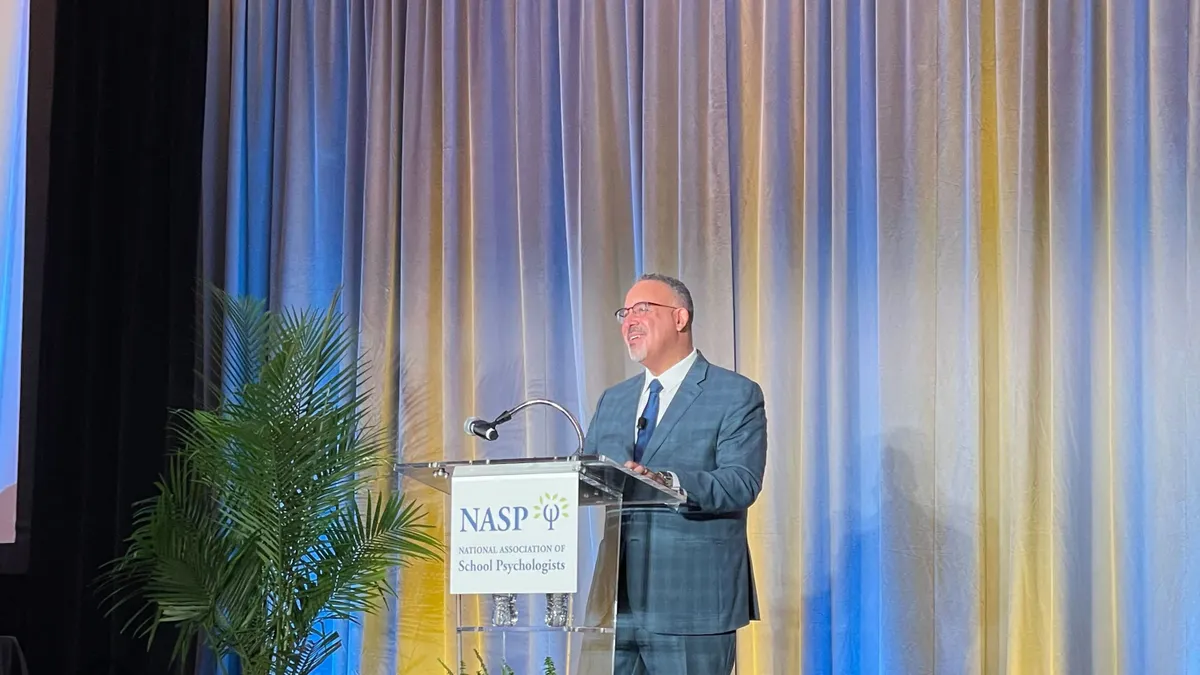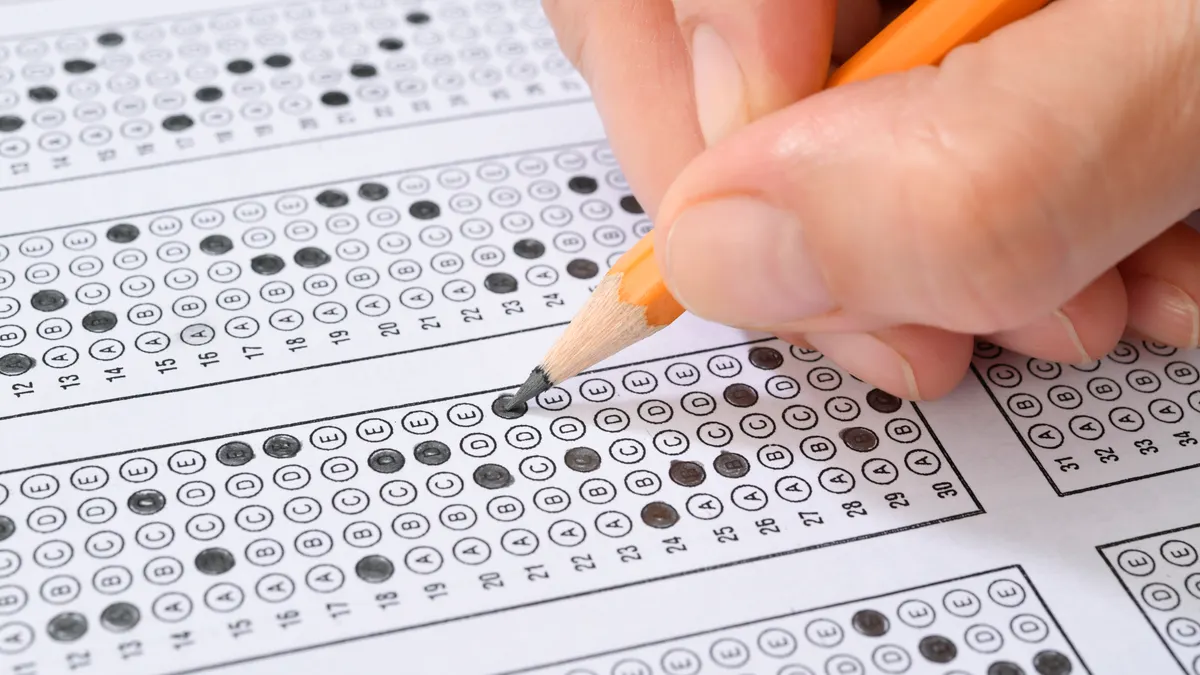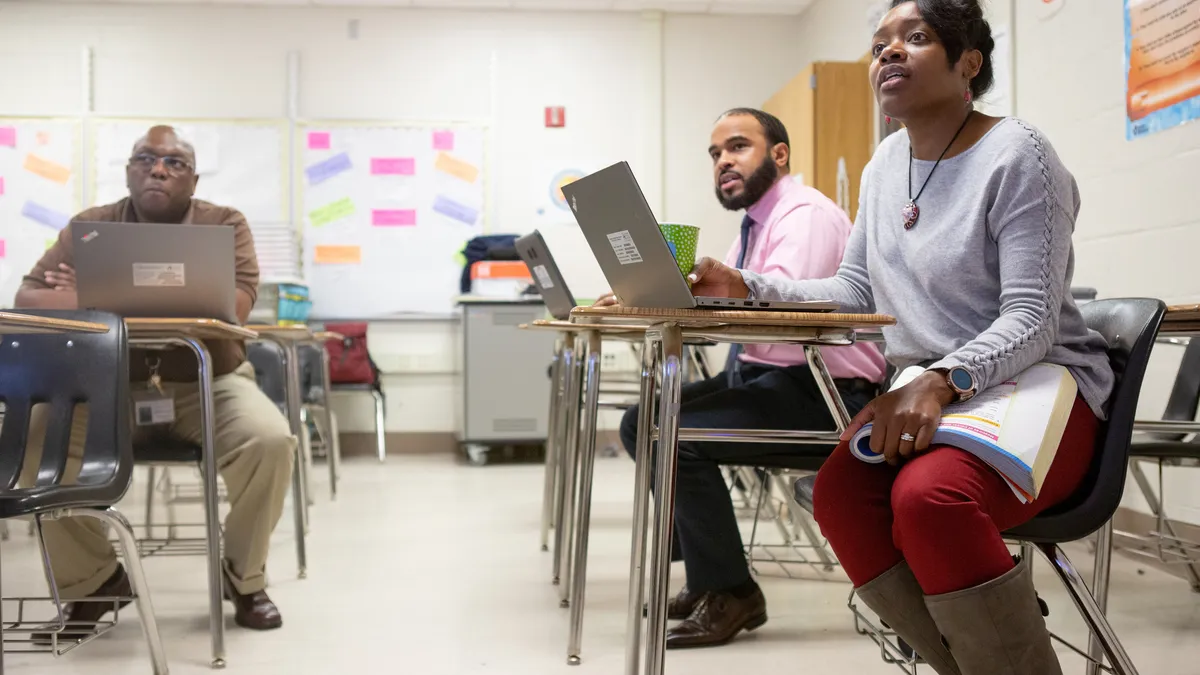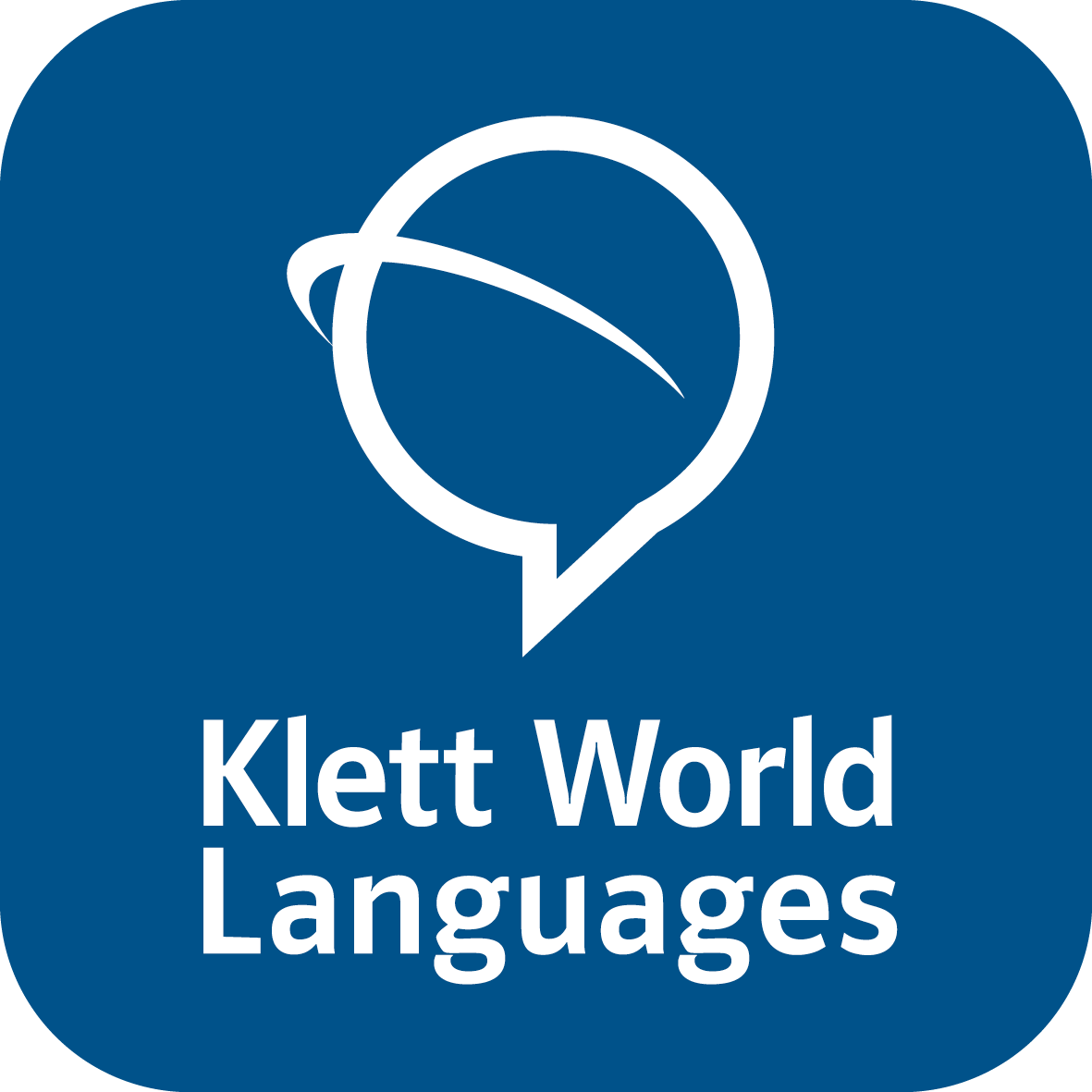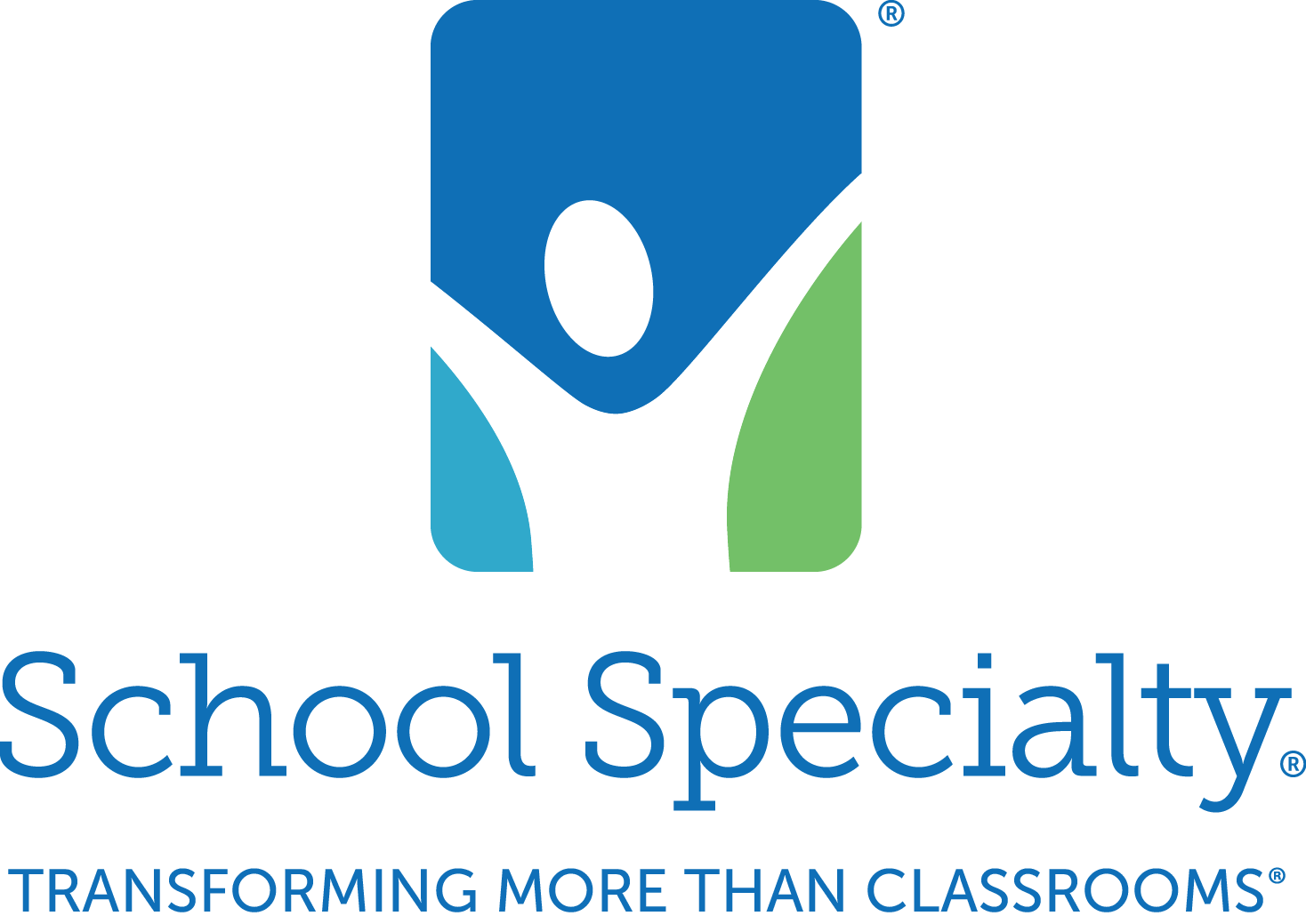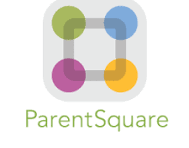School choice advocates and public school supporters are eagerly awaiting details of the nation's first federally funded tax credit scholarship — a program that could accelerate private school choice participation while funneling taxpayer dollars to private schools.
Approval of the first nationwide private school choice program came in the Republican-led “One Big, Beautiful Bill" signed by President Donald Trump on July 4.
The U.S. Department of Treasury is expected to issue proposed rules detailing how the program will operate, including how states can opt in and what guardrails will be put on managing the scholarships. However, it's unclear where this work stands and whether the prolonged federal government shutdown has delayed this work.
The Treasury Department did not immediately respond to an inquiry from K-12 Dive on Wednesday about the status of the rule.
The new law allows any taxpayer to donate up to $1,700 annually to a scholarship-granting 501(c)(3) organization, or SGO. That donor would then be eligible for a 100% federal income tax credit for their contribution. The contributions could then be used toward private school tuition at secular and religious schools, homeschooling materials, and expenses at public or private schools.
The money generated from contributions could add up to $101 billion per year if all 59 million taxpayers chose to claim the credit, according to a July analysis from the Institute on Taxation and Economic Policy. However, the institute predicts not all taxpayers would participate.
Taxpayers can begin making contributions to scholarship-granting organizations beginning Jan. 1, 2027. States need to opt in to participate.
Advocating for and against federal scholarships
Since the omnibus budget was signed into law, supporters and critics of the tax credit scholarship provision have been voicing concerns and questions. For instance, a coalition of more than 200 national and state organizations that support education freedom wrote to the Treasury Department on Oct. 24 to offer their recommendations as the agency begins to write proposed regulations, according to the letter posted by Tax Analysts, a nonprofit tax publisher.
The group suggested that there be consistent requirements for scholarship-granting organizations and clarity on the timeline for when states submit lists of qualified SGOs.
"We believe the three guiding principles for rulemaking are to make it: as easy as possible for as many families as possible to access scholarships for their children; as easy as possible for scholarship-granting organizations (SGOs) to participate and provide scholarships; and, as easy as possible for taxpayers to contribute to SGOs," the letter said.
ACE Scholarships, a Denver-based nonprofit scholarship-granting organization that operates in 13 states, is part of that coalition. Jackie Guglielmo, vice president of services, said ACE has been busy fielding inquiries from SGOs, families and schools about the new program. It has also worked to help Treasury Department staff understand how current SGOs support private school choice programs.
The Treasury Department is "really looking to us to understand the operations," said Guglielmo, who anticipates proposed regulations will be released early next year.
The organization is also meeting with state leaders to discuss their potential participation, Guglielmo said. "I think a very, very important part of this initiative that's sometimes overlooked is that both private and public students are eligible to receive the scholarship, and that's something that's really exciting."
Arne Duncan, who served as U.S. education secretary in the Obama administration, recently co-wrote an opinion piece in The Washington Post urging states to participate. "Opting in doesn't take a single dollar from state education budgets. It simply opens the door to new, private donations, at no cost to taxpayers, that can support students in public and nonpublic settings alike," the op-ed said.
Meanwhile, organizations critical of the fledgling program are urging states not to opt-in. Although the program includes taxpayer contributions to public schools, people should be aware of the "potential ramifications of opening the door to a voucher scheme that is ultimately designed to benefit private and religious schools," according to a Sept. 15 fact sheet from Public Funds for Public Schools and the Education Law Center.
Public school supporters are concerned the program will lead to reduced funding for public schools and worry about educational equity and accountability at private schools.
Research into existing private school voucher programs shows negative impacts on academic outcomes, as well as high participation rates from students who already attend private schools, said Kevin Welner, director of National Education Policy Center, during an Oct 14 webinar hosted by the public school advocacy group Public Funds for Public Schools.
There's a "huge amount of money shifting to subsidize people to go to private school," Welner said.









